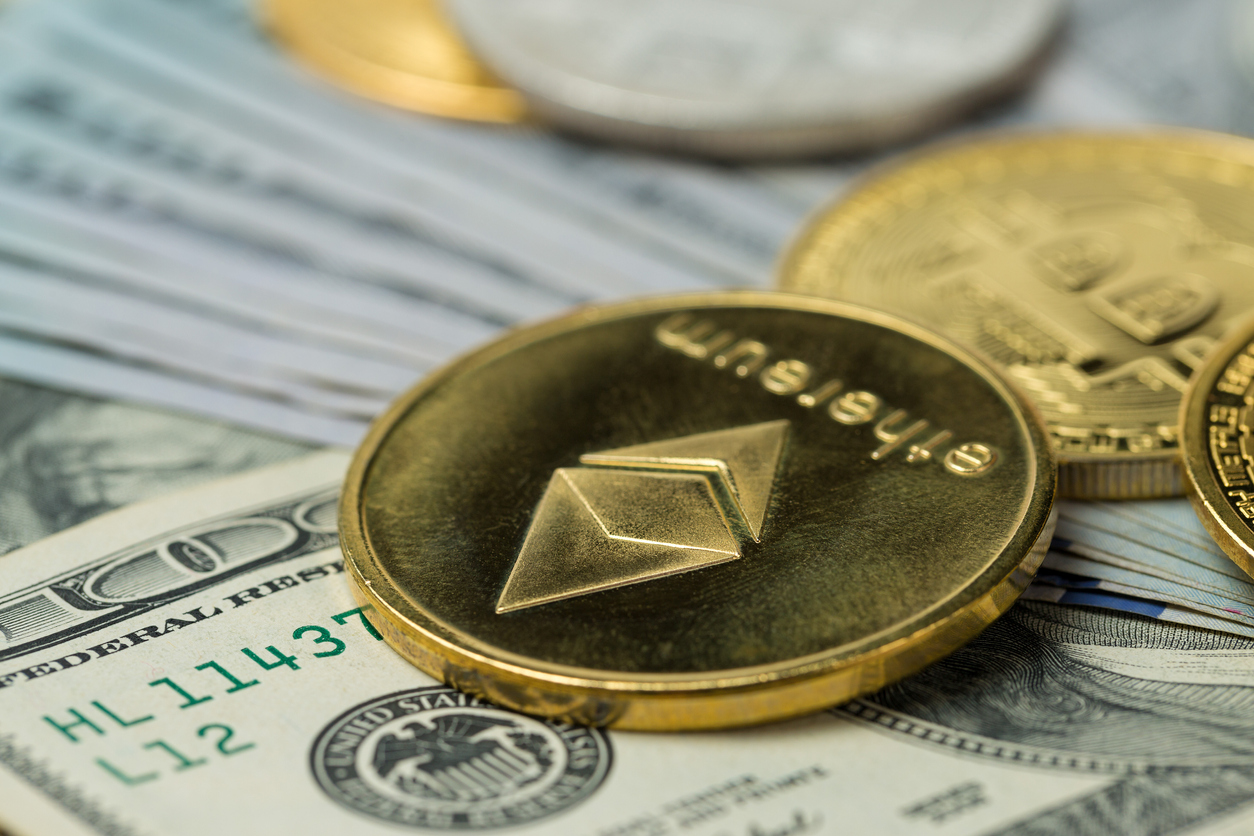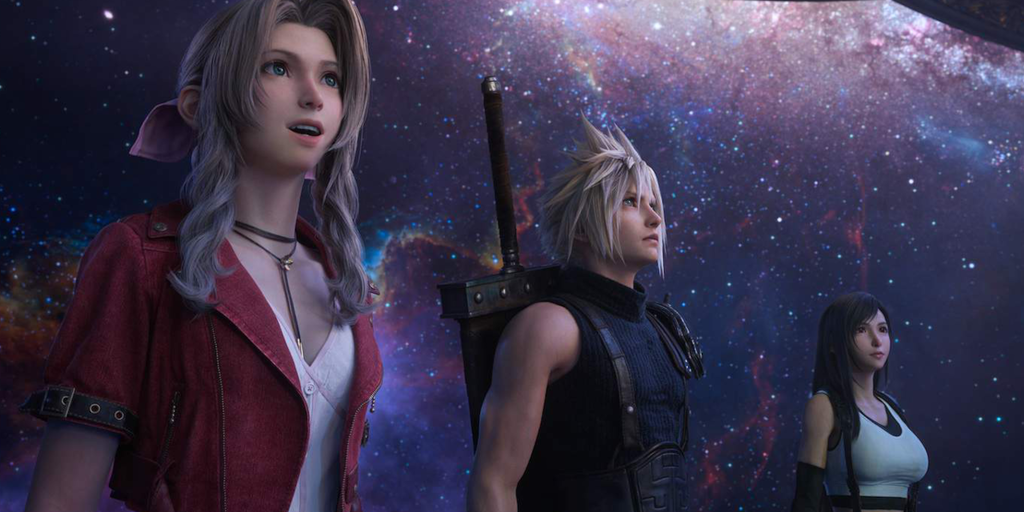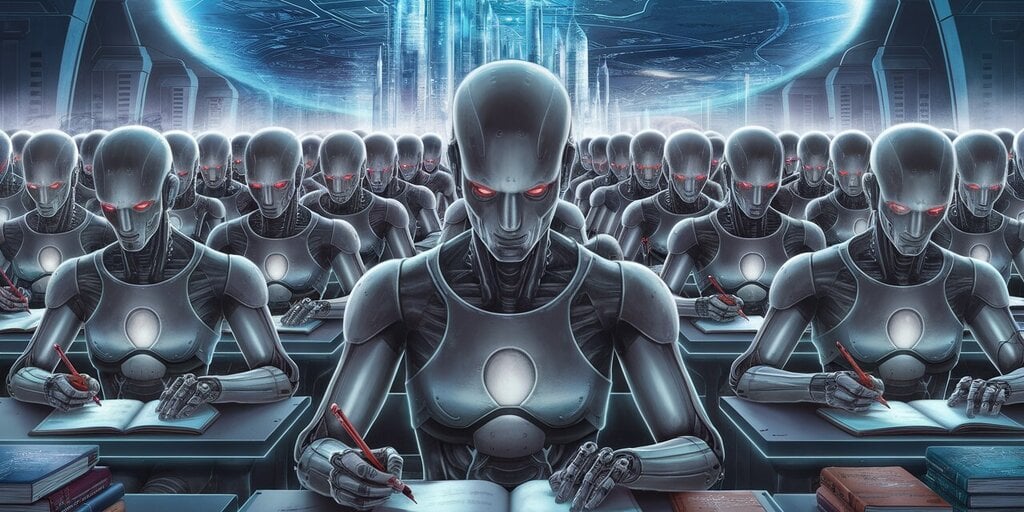
Writers have found AI useful in coming up with story ideas, stimulating creativity, and making content more engaging and professional. But a new study suggests that overusing the technology could risk limiting the diversity of collective creative output. In other words, AI could make writing less diverse.
“Generative AI-driven stories are more similar to each other than human-only stories,” the study said. “These results suggest increased individual creativity at the risk of losing collective novelty.
“Our results suggest that despite the potential enhancements to individual creativity that generative AI can provide, there may be caveats if generative AI is adopted more broadly for creative tasks,” the researchers added.
The study’s authors, Anil Doshi and Oliver P. Hauser, conducted the experiment in several stages. First, they recruited 293 participants and had them write short stories, then divided them into three groups: humans only, humans with one generative AI idea, and humans with five generative AI ideas. The generative AI ideas came from OpenAI’s GPT-4.
In the second phase, a separate group of 600 participants evaluated the stories for creativity, novelty, usefulness, and emotional quality. Scores were collected based on criteria such as “This story is well written,” “This story has a surprising twist,” and “This story is boring.” To avoid bias, the evaluators were unaware of the use of generative AI until after the initial evaluation.
AI improved scores in some metrics. For example, one of the most important advantages of generative AI is its ability to “specialize” content. Stories produced with the help of AI were often described by evaluators as being better written and more enjoyable.
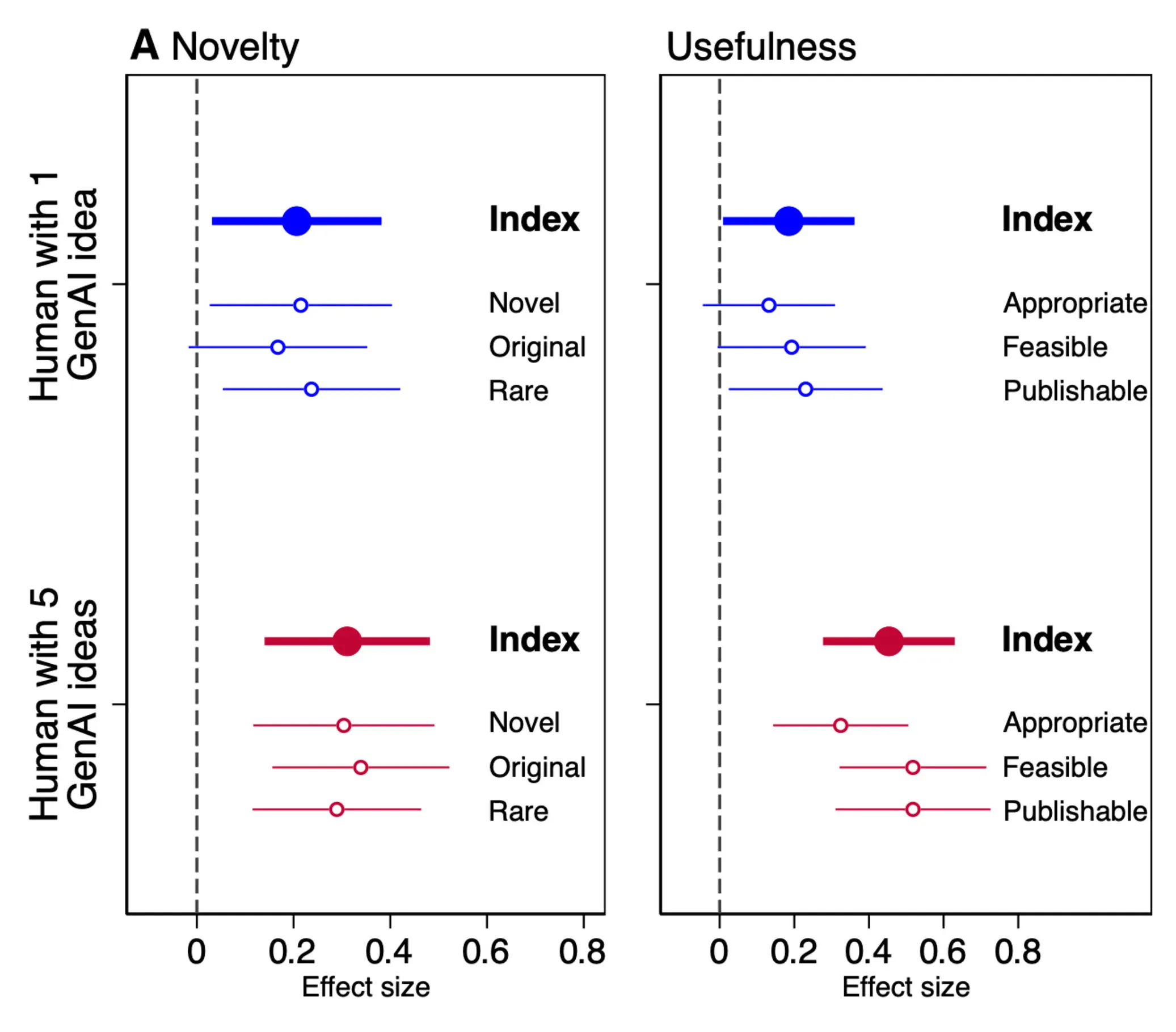
The study found that these improvements were particularly noticeable among inherently less creative writers, leveling the playing field and allowing them to produce work on par with their more creative peers. On the other hand, the study also found that inherently creative people did not benefit as much from the use of AI.
But the more AI is used, the more it benefits those who need it.
“We found that while access to a single generative AI idea led to somewhat greater creativity, the largest gains (and statistically significant differences in pre-registered scores) came from writers who had access to five generative AI ideas,” the study noted.
Compare stories
After testing, the researchers looked at how similar the texts were. To do this, they used a set of embeddings obtained from OpenAI’s API. These embeddings helped characterize the content of the text. They then quantified the uniqueness of each story by measuring how similar each story was to the other using cosine similarity. This is basically a metric that evaluates the similarity between two vectors regardless of their size.
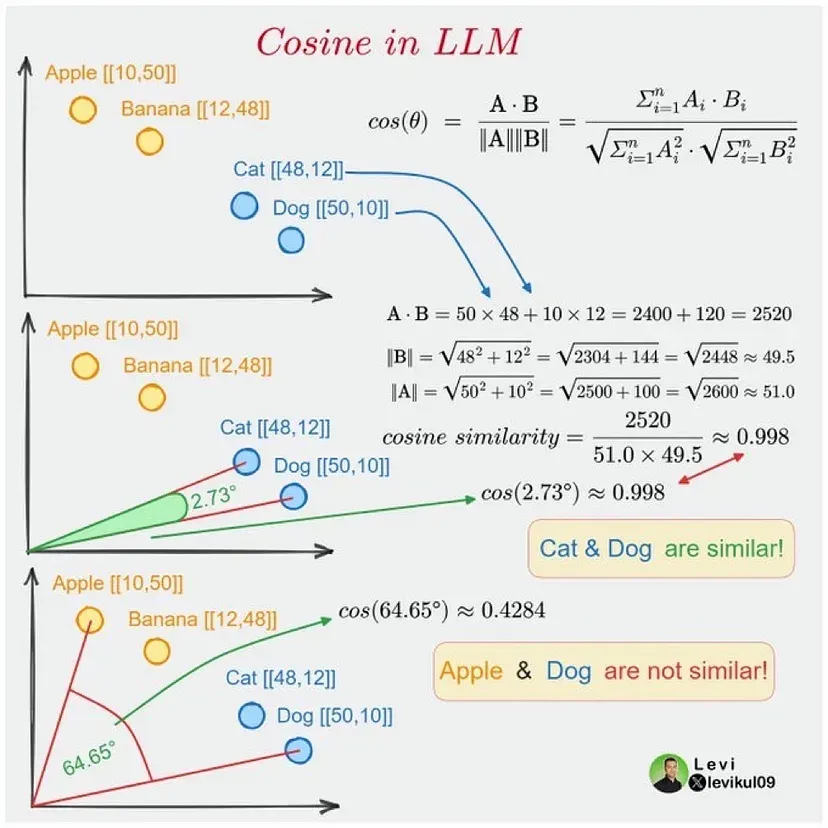
The results showed that stories generated with the help of AI were more similar to each other than stories generated without AI. This similarity could be due to the “locking effect” of AI-generated ideas, which, while creative, can limit the variety of ideas the writers themselves come up with from the start.
“Our results show that approaching the idea of generative AI makes stories more similar to the average of other stories within the same conditions,” the researchers concluded.
The study also revealed ethical implications for using AI in the creative process. Most evaluators in the study felt that using AI to write stories was ethical and still a “creative act.” However, they did penalize writers who used AI, suggesting that transparency and fair credit are essential for AI-assisted creations.
According to the study, “most evaluators stated that publications using these tools should disclose the use of AI or the underlying text of the AI.”
As ethical issues become more important at the intersection of AI and art, the capabilities of generative AI tools are increasing.
The future of creativity in the age of AI presents a potentially self-fulfilling prophecy. Individuals who are less creative may increasingly rely on AI to overcome their creative block, undermining their ability to express their talents and increasing their reliance on technology rather than intelligence. A recent study published in the International Journal of Educational Technology in Higher Education warned that “the use of ChatGPT is likely to result in procrastination, memory loss, and lower academic achievement in students.”
Given the impact of generative AI today, this trend has the potential to extend beyond academia to all fields that value creativity. Understanding and addressing these dynamics will help artists fully leverage the potential of generative AI while protecting the irreplaceable nature of humanity.
Edited by Ryan Ozawa.
Generally intelligent Newsletter
A weekly AI journey explained by Gen, a generative AI model.


